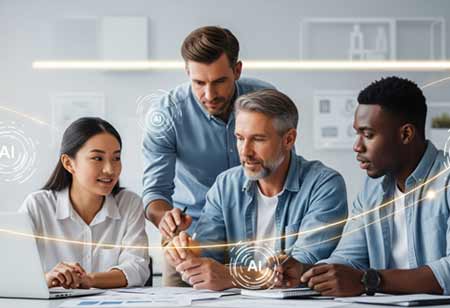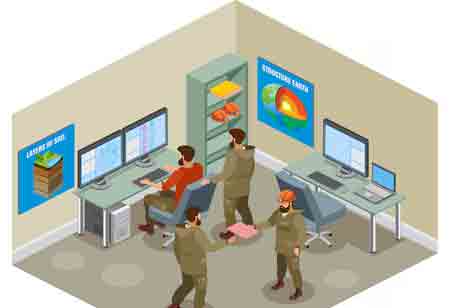THANK YOU FOR SUBSCRIBING
Be first to read the latest tech news, Industry Leader's Insights, and CIO interviews of medium and large enterprises exclusively from Gov CIO Outlook
THANK YOU FOR SUBSCRIBING

By
Government CIO Outlook | Thursday, August 01, 2024
Stay ahead of the industry with exclusive feature stories on the top companies, expert insights and the latest news delivered straight to your inbox. Subscribe today.
The use of technology is not only affecting our work and personal lives. It is also enhancing public services and functions across entire cities.
Fremont, CA:It is designed to make it easier for citizens and visitors to navigate traffic, access essential services, save energy and much more by creating "smart cities." In the near future, evolving technologies such as artificial intelligence, the Internet of Things, and blockchain may dramatically change urban living.
Listed below are a few smart-city technologies they expect will improve services and enhance the quality of everyday life.
A blockchain-based technology
Transparency, security, and efficiency can be enhanced through blockchain-based smart-city technology. Boosting energy, transportation, and waste management sustainability reduces costs, improves trust, and decreases costs. The result is a livable and equitable environment that improves citizens' quality of life.
Analyzing and monitoring energy consumption
Monitoring and testing of energy is one of the smart-city technologies already being implemented in some cities. Algorithms will automatically adjust such things as brightness and power sources based on electricity usage versus a company's needs. My belief is that this technology will soon be rolled out to other major cities to help businesses save energy and reduce their power bills.
Integrated, city-specific traffic networks
Reimagining transportation will be driven by smart infrastructure. It's unlikely that autonomous cars will exist as they are envisioned today. Smart cars will operate within a network that is fully connected to the city, allowing them to communicate with external devices and structures - traffic lanes, signals, etc. - in real-time, ensuring everyone is on track.
A smart grid for energy
Smart grids are essential for energy sustainability in smart cities. The use of smart grids allows the distribution of power to be rationalized, personalized, and detected instantly in order to prevent outages before they occur. The supply and demand are efficiently balanced and optimized
A ubiquitous 5G network
All users will be able to access 3D data at very low latency with 5G access in smart cities. It will be possible to deploy more advanced artificial intelligence and augmented reality applications as a result.
AI-driven traffic management using IoT devices
A promising smart-city technology is the integration of Internet of Things devices and AI-driven traffic-management systems. Using real-time traffic data and coordinated traffic signals, these systems can significantly reduce congestion, optimize transit efficiency, and reduce greenhouse gas emissions. Citizens will benefit from this improvement in their daily lives and commutes.
Vehicles operating autonomously
Smart cities can benefit from autonomous vehicles because they reduce congestion, improve safety, increase efficiency, and make travel more accessible for people who cannot drive. It is also possible to reduce the impact of transportation on the environment with this technology. However, a number of challenges remain, such as safety concerns and the loss of jobs.
I agree We use cookies on this website to enhance your user experience. By clicking any link on this page you are giving your consent for us to set cookies. More info



